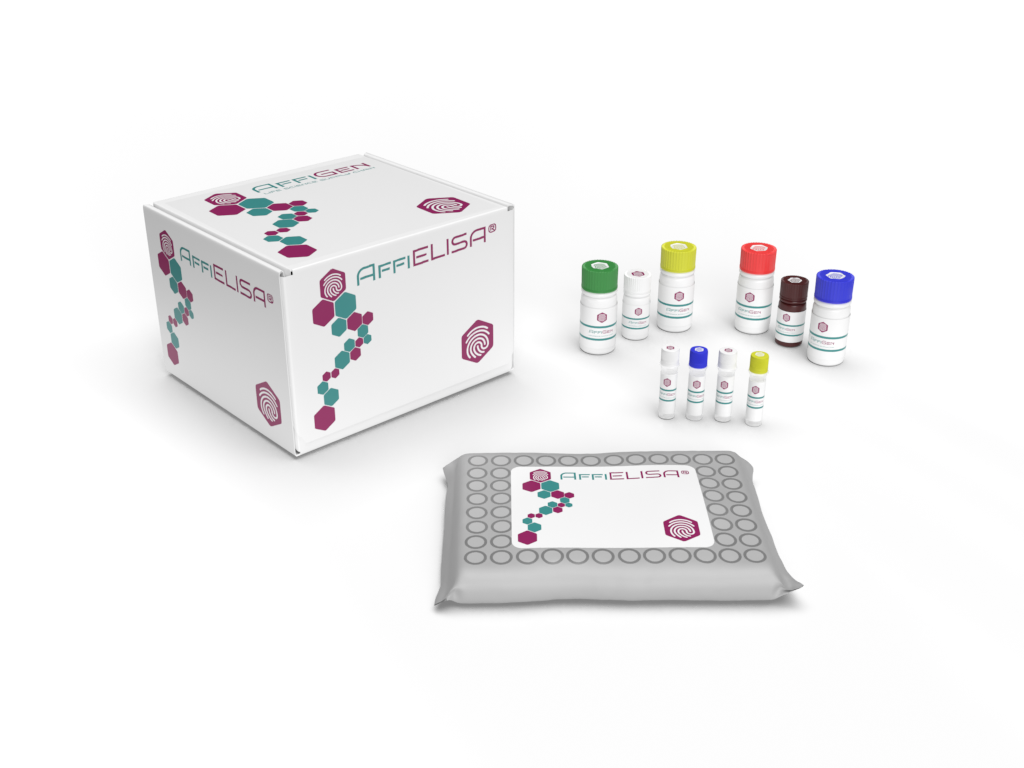AffiELISA® Canine Protein Disulfide Isomerase | PDI | ELISA Kit
The AffiELISA® Canine Protein Disulfide Isomerase (PDI) ELISA Kit is a tool used for the quantitative measurement of protein disulfide isomerase in canine samples. Protein disulfide isomerase is an enzyme involved in catalyzing the formation and rearrangement of disulfide bonds in proteins, crucial for their proper folding and function.
ELISA (Enzyme-Linked Immunosorbent Assay) is a widely used laboratory technique designed to detect and quantify proteins, peptides, antibodies, and hormones in biological samples. This particular kit is specific to canine PDI, allowing researchers or clinicians to assess the levels of this protein in canine samples.
The assay typically involves the use of specific antibodies that bind to the target protein (in this case, canine PDI) in the sample. The kit provides the necessary reagents and protocols to perform this analysis, allowing for accurate measurement and quantification of PDI levels.
Such kits are valuable in both research and diagnostic settings, providing insights into the expression levels of specific proteins in biological samples, which can be correlated with various physiological conditions, diseases, or treatment responses in canine subjects.
Product Specifications
Species
Canine
Gene / Target
PDI
Assay Type
Sandwich ELISA
Assay Length
3-4 hours
Canine Protein Disulfide Isomerase Background
Protein disulfide isomerase (PDI) is an enzyme found in cells that plays a critical role in the folding and formation of proteins. Specifically, PDI facilitates the correct formation of disulfide bonds between cysteine residues in proteins, which is crucial for their proper three-dimensional structure and function.
In canines, as in other mammals, PDI serves as a chaperone protein, aiding in the folding process of newly synthesized proteins within the endoplasmic reticulum (ER). The ER is an organelle responsible for protein synthesis and folding within the cell. PDI helps proteins fold correctly by catalyzing the formation, breakage, and rearrangement of disulfide bonds until the protein achieves its functional conformation.
The proper functioning of PDI is essential for various cellular processes, including the correct folding of secretory proteins, quality control mechanisms within the cell, and the regulation of cellular redox (oxidation-reduction) balance.
Alterations in PDI expression or activity can impact protein folding and potentially lead to misfolded or malfunctioning proteins. Dysregulation of PDI has been associated with various diseases, including neurodegenerative disorders, cardiovascular diseases, and cancer, highlighting the importance of this enzyme in maintaining cellular homeostasis. Studying canine PDI can provide insights into normal cellular function as well as disease mechanisms, aiding in both veterinary research and potential therapeutic interventions for canine health.
